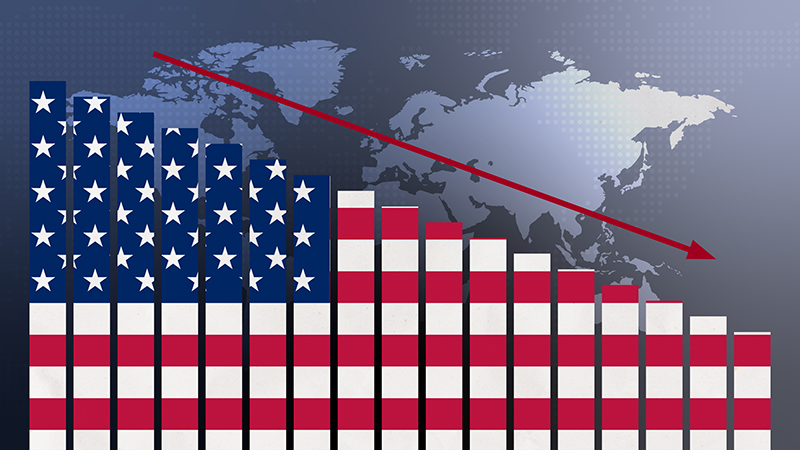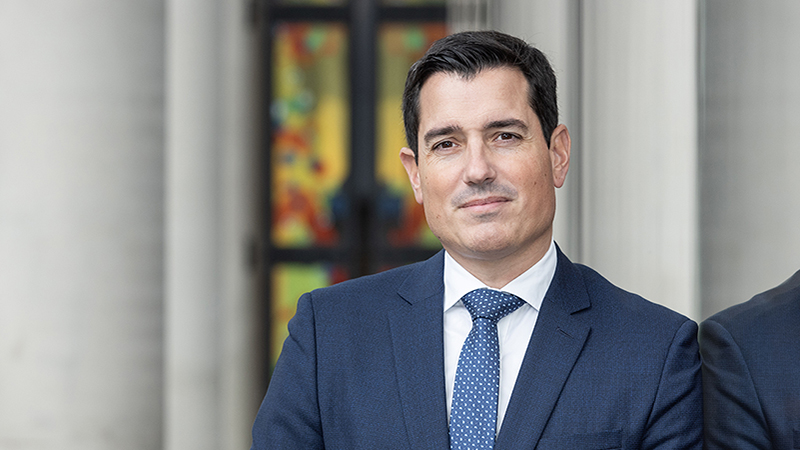Despite markets pricing in interest rate cuts in the US in September, following on from similar decisions in the UK and Europe, AXA IM fixed income portfolio manager Nicolas Trindade argues that short duration is still the place to be.
He manages a number of AXA IM’s fixed income offerings, including its Global Short Duration Bond fund, which was recently upgraded to an ‘AA’ rating by Square Mile.
“It’s going to be a very interesting second half of this year. I think the market had it easy over the first half,” Trindade says.
“It’s been pretty smooth sailing so far, particularly in equities, but even in credit land. Credit spreads have been tightening quite nicely since the beginning of the year, apart from in June, when we had that little wobble because of the French elections, and in early August due to a growth scare in the US following a weak payroll print.
“Overall, it’s been pretty smooth, but I’m worried that the second half of this year is going to be a lot more challenging for investors. We are positioned for a difficult second half, running more duration on the front end and less credit risk than we have had historically.”
See also: Pridham report: Over half of UK fund groups grow net sales for third straight quarter
Why short duration for rate cuts?
While investors may be tempted to lock in higher interest rates by going long duration while central banks are still in the first phases of initiating a rate-cutting cycle, Trindade presents the case for short-dated strategies.
He says the front end of the market is attractive because of the inverted shape of the yield curve.
“Therefore, the incentive to lengthen duration is not really there. If you lengthen duration, you take more duration risk for either less or a similar level of yield, so you’re still better off being at the front end.”
Trindade points out that normally longer duration may perform better than short-dated bonds in a rate cutting cycle.
“That is only true as long as the yield curve shifts in a parallel fashion,” he says. “If the yield curve shifts in a parallel fashion, then yes, you will be making more money by being longer duration.
“However, what we expect in this cycle is a strong bull steepening of the yield curve, where front end yields will fall by more than being at the long end of the curve. That is because we expect an ageing population, increased defence spending and the transition to a net zero economy to lead to more government borrowing mostly focused on the belly and long-end of the curve, pushing yields higher.
“If you have a very strong bull steepening of the yield curve, then even on a total return basis you may still be better off being in front of the market rather than the long end.”
Short duration can also better protect investors against further inflationary shocks and interest rates diverging from expectations.
Trindade says that in the event of a Trump presidency in November, the potential increase of tariffs on foreign goods in the US along with tax cuts could cause an inflationary shock which could cause central banks to stop cutting rates.
“If that is the case, you definitely don’t want to be long duration.
“That’s why, right now, you can have your cake and eat it when you’re in the short-dated market. Not only do you benefit from very attractive yields, and therefore you benefit from central banks cutting rates, but you also benefit from better protections in case central banks don’t cut rates. It’s a very good place to be in right now.”
Opportunities
The AXA Global Short Duration Bond fund has the flexibility to invest across the short-dated fixed income universe, up to a maximum maturity of five years.
In terms of current positioning, the managers are allocating more defensively. Trindade says they are happy to carry less high-risk investments in the portfolio, with less emerging market risk than usual as he believes there will be a better entry point in the future.
“There are a lot less opportunities in the market right now than just 12 months ago, because spreads have tightened a lot.
“We have to be very nimble. For example, when there was an underperformance of French assets on the back of Emmanuel Macron calling a snap election in July, we took that as an opportunity for us to add exposure to French assets.
“We bought some French government bonds and some French banks ahead of the first round of voting, because our view was that the likelihood of an outright majority from the far left and far right was quite limited. And therefore, we were happy to buy more French risk assets at much more attractive valuations.”
See also: Morningstar: Fixed income funds see highest net flows in five years
UK optimism spreads to fixed income
Another area of the market he finds appealing is in sterling investment grade bonds, particularly in other UK water companies on the back of Thames Water’s recent struggles.
“Thames Water has been going through a difficult time, and we haven’t had any exposure to that for some time. But, that has created some pressure on other UK water names, and some of them are very well run with adequate amounts of leverage and have been underperforming because of what’s been happening with Thames Water.
“It has created opportunities for us as active managers to pick the names we like fundamentally at much more attractive spreads.”
Overall, the arrival of a new government in the UK has prompted many investors to begin to explore opportunities in Britain once again after years of negative sentiment.
Asked about the implications of the change in government for fixed income, Trindade says: “It makes it more attractive at the asset class level. There are a lot of investors that just wouldn’t look at sterling investment grade because of what was happening in the UK since Brexit. But now, valuations look attractive, and we are overweight sterling investment grade in our Global fund.
“Some investors may revisit the case for UK equities, as well as UK fixed income, because of the expected political stability and a centralised government which has quite a business-friendly agenda. I think that is a positive for the asset class, because the political instability that we have had in the last couple of years was a big break on overseas investors looking at assets.”
Looking ahead, he expects the BoE to cut rates twice this year, with another coming in November.
“We think the BoE has quite a strong incentive to cut rates this year and next year, because there’s still that time bomb of mortgages which will have an impact not only on mortgage holders, but also renters.
“I think there’s an acknowledgement from the BoE that that’s going to have a massive impact on consumer spending, and therefore they need to get ahead of the game from that perspective.”











